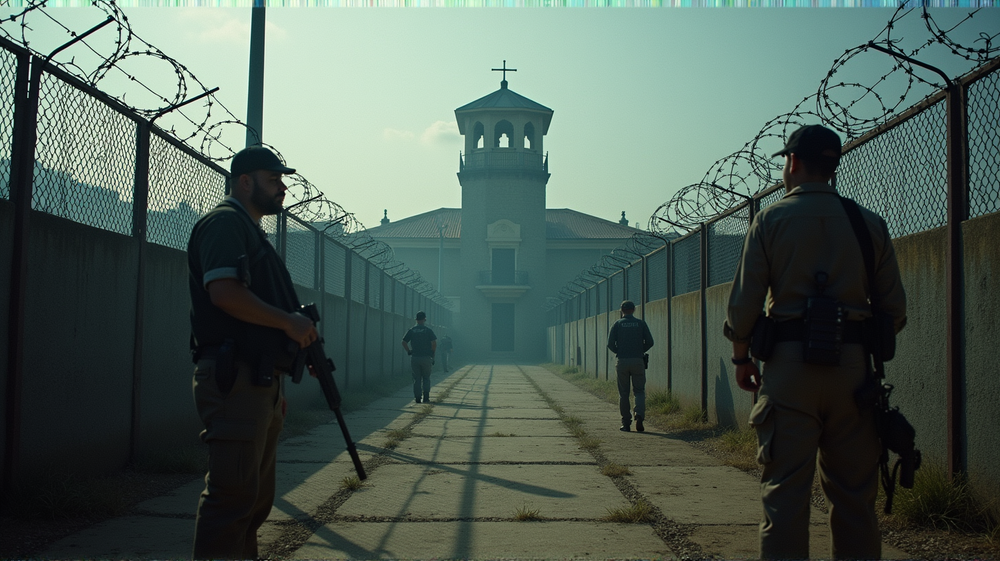In a daring and unprecedented move, President Nayib Bukele of El Salvador has agreed to a collaborative effort with former President Trump, relocating some of the United States’ most dangerous prisoners to El Salvador’s infamous prison facilities. This decision is fueling heated discussions across the globe, questioning both the ethics and the effectiveness of such an action.
A Prison Like No Other
The prisons in El Salvador, known for their harsh conditions and stringent control measures, are infamous worldwide. They have been described as places where the strictest security protocols are enforced, offering no mercy to those who dare to challenge the rules. The decision to transfer prisoners to these “hellish” facilities was met with a mixture of praise and criticism, highlighting the divisive nature of Bukele’s bold approach. According to MARCA, this move has drawn attention from international human rights organizations who are closely monitoring the situation.
The Trump-Bukele Connection
Former President Trump has frequently lauded President Bukele’s efforts to combat gang violence and restore order in a country often plagued by crime. This collaboration between Trump and Bukele is seen as an extension of their shared goal of maintaining law and order by whatever means necessary. Bukele’s willingness to accept US prisoners has been framed as a testament to his unwavering determination to uphold justice, irrespective of borders.
Global Reactions
The international community has reacted with a spectrum of opinions. While some applaud Bukele’s fearless approach to prisoner management, others worry about potential human rights violations given the notorious conditions within El Salvador’s detention centers. Human rights watchdogs have expressed grave concerns regarding the welfare of inmates transferred under this new arrangement, raising questions about the transparency and oversight of the process.
Strategic Implications
For El Salvador, this move presents both an opportunity and a challenge. On one hand, the influx of prisoners could mean increased responsibility and scrutiny. On the other, it strengthens the nation’s relationship with the United States and asserts Bukele’s authority on the international stage. As stated in MARCA, the decision could pave the way for future collaborations between the two nations, provided the implementation goes smoothly.
Looking Forward
As the prisoners settle into their new environment, the world watches closely to see how this bold experiment unfolds. Will Bukele’s strategy prove to be a pioneering solution to global crime cooperation or a miscalculation fraught with legal and ethical dilemmas? Only time will tell, as El Salvador continues to grapple with the complexities of its enhanced role in international criminal justice.
This unprecedented move by Bukele is more than just a change in prisoner location; it is a statement of intent, an assertion of power, and an invitation for the world to consider unconventional solutions in the fight against crime.













